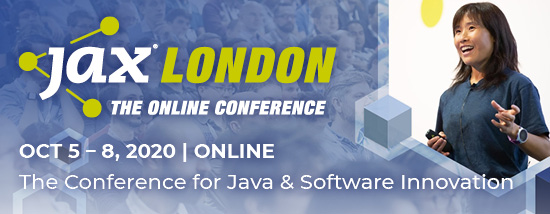A research study by The National Center for Women & Information Technology showed that “gender diversity has specific benefits in technology settings,” which could explain why tech companies have started to invest in initiatives that aim to boost the number of female applicants, recruit them in a more effective way, retain them for longer, and give them the opportunity to advance. But is it enough?
Four years ago, we launched a diversity series aimed at bringing the most inspirational and powerful women in the tech scene to your attention. Today, we’d like you to meet Emily Brand, Chief Architect at Red Hat.
Today’s Woman in Tech: Emily Brand, Chief Architect at Red Hat
 Emily Brand is Chief Architect of Transformation and Adoption at Red Hat focusing on building complex solutions for financial services, insurance and healthcare clients leveraging Red Hat technologies and the Red Hat ecosystem to improve business processes using a variety of technologies including Automation, Containers, and Application Services to modernize both culture and technology.
Emily Brand is Chief Architect of Transformation and Adoption at Red Hat focusing on building complex solutions for financial services, insurance and healthcare clients leveraging Red Hat technologies and the Red Hat ecosystem to improve business processes using a variety of technologies including Automation, Containers, and Application Services to modernize both culture and technology.
When did you become interested in technology?
Growing up in the 90s, unlike most kids, my parents had a home network – my dad had built a small website as our homepage to get to common family links. When I was around 12, I was interested in how it was made and decided to look at his code. This piqued my interest so I took online tutorials from w3schools.com, one of the most popular free educational websites back then in order to learn how to code websites myself. From there, my interest in web development took off. I managed to work a few consulting jobs in high school to build websites, which opened up my eyes to pursuing a career in computer sciences.
How did you end up in your career path? What obstacles did you have to overcome?
I graduated from Loyola University Chicago simultaneously with a B.S. in Computer Science and a Master’s degree in Software Engineering within four years through a dual degree program. After graduation, I started to work in internal IT at HP. From there I progressed to Red Hat, where I have been ever since. It’s hard to believe it has been over 10 years now!
I’ve had a few major obstacles in my career, but the small hindrances are more draining. As an example, whenever I attend an external or new customer meeting, I have to reiterate my technical skills and background unlike my male colleagues who are assumed to be technical. Over the past decade I’ve also had to adapt to questions such as ‘are you the project manager or are you the marketing representative?’ despite clearly introducing myself with my technical title. These microaggressions can be exhausting.
One of the major opportunities I received during my career was a position at Red Hat in New York City about half way through my tenure. Deciding to move from Austin, Texas, was a struggle and a big debate, but I do not regret taking up the opportunity. It has opened many doors for me and I have grown a lot professionally and personally. If the opportunity arises, I recommend everyone to try to live and work somewhere new to change your perspective.
Did you receive support from your family and friends? Do you have a role model?
My family has always been supportive of my technical career, even when I enrolled in Environmental Science at Loyola University Chicago, my parents advised me to reconsider. My parents felt my lack of excitement and encouraged me to find my passion. Following my gut, I changed all classes to computer science three days before the first day of college. I’ve never looked back. I’ve been in love since day one, and it’s in large part because of my family’s initial push.
I’ve had a lot of role models and mentors in my life; my parents, my aunts and uncles, my teachers and bosses to name a few. I am very fortunate to have received so much encouragement and support from my family and peers throughout my life, especially considering that I didn’t follow the ‘expected’ path and instead chose to forge my own way.
I am very passionate about enabling a greater future for the generations to come and hope we can convince more women to take up careers in technology.
Did someone ever try to stop you from learning and advancing in your professional life?
Early in my career, I was told I was “too ambitious” by my peers since I was always involved in a multitude of working groups within and outside of my company. But I did not allow that to hamper me. Today I am happy I chose to follow the many passions instead of trying to fit into an established mold. I gained so many valuable experiences and learned so much by following my interests. Luckily Red Hat is very supportive of extended learning opportunities so I continue to keep up my many interests.
A day in Emily’s life
As a Chief Architect of Transformation and Adoption I spend some of my day talking to clients at all levels of an organisation to discuss how they can improve and optimise the lives of their coworkers and associates. We also discuss how to best automate and improve processes, so organisations can spend more time focused on innovation and the “fun work” instead of the monotonous toil that burns associates out.
When I’m not speaking with clients, I work with other Red Hatters to build solutions for our clients and improve the way we work with each other as well as planning and strategising for the future. I also regularly speak at conferences and meetups and draft blog posts for Red Hat.
I am very passionate about enabling a greater future for the generations to come and hope we can convince more women to take up careers in technology. For instance, I’m on the Red Hat Women’s Leadership Community Sales & Services committee, and also lead recruiting efforts at the Grace Hopper Celebration, where I’ve helped hire more than 40 women the past 5 years. I’m also active across regional events across North America, for instance I support the Fleurix Conference, which aims to increase the number of women pursuing technology careers.
What are you most proud of in your career?
There are quite a few things I’ve been proud of, but I hope by blazing trails I make it easier for others to follow. In most positions I’ve held, I have been the youngest and the only (or one of a few) females in the role. I’ve helped create a change internally by vocalising hiring and promotion needs (this also includes reshaping job descriptions to attract a larger diverse range of applicants, and speaking to team members about how they should conduct themselves). In fact, there has been an increase in diversity and an uptick in the number of women in each of the roles I’ve held by the team I leave (through being promoted or changing teams).
By being outspoken about D&I, and constantly forcing myself to self-reflect and learn, I truly believe that I have helped shape Red Hat into a better place than when I originally joined it.
I’m also very proud of my mentorship and sponsorship of others. I push my mentees and the people who report to me to step out of their comfort zones, by guiding them how to build themselves up professionally instead of only focusing on the work right in front of them. As a result, I have seen many people climb up the ladder and land jobs they never dreamed of before.
Why aren’t there more women in tech?
I blame stigmas, biases and a lack of tangible impact at younger ages for a shortage of women in technology roles. Most people develop a passion for technology through entry points such as gaming or web browsing. We need to ensure we’re creating interesting entry points welcoming pupils at all levels to present careers in technology as a viable choice. Women in technology also need a lot of grit. Females face unique biases and stigmas from an early age, including being categorised in certain categories. As a society, we have lower expectations for girls in sciences and maths, whereas we tend to push or encourage boys more in this area. We need to ask ourselves, are we providing the right mentoring and resources to all pupils equally to help them succeed?
Also we cannot ignore the fact that half of all females leave the technology sector by the age of 35, due to non-inclusive work cultures. Women entering and staying in tech is clearly not something that will happen naturally, so companies need a more concerted effort to help women find sponsors early in their careers to help get their names mentioned in the important rooms earlier in their careers.
I blame stigmas, biases and a lack of tangible impact at younger ages for a shortage of women in technology roles.
Could you name a few challenges (or obstacles) women in tech face?
Women in tech often face the unique challenge of dealing with the underlying ‘housekeeping’ required for the greater success of the team, although not specified in their job descriptions. When starting to pick up related tasks, females need to ensure they are communicating any extra work to their managers, while also tracking the impact and importance of that work.
Would our world be different if more women worked in STEM?
I can only speak to this from a US perspective, but Melinda Gates has published extensive research from a global perspective. If we had more women working in STEM, we’d clearly see improved policies relating to family leave, work schedules and environments. Diverse leadership teams have also proven to increase organisations’ bottom lines, explaining why we’ve seen an increase of investment firms developing quotas for women on boards. The more diverse a company is in perspectives and experiences, the better the organisation does as a whole.
The discussion about diversity is gaining momentum. How long will it take to see results from the current debate?
I’m an idealist and optimist, however I have not forgotten that women’s participation in tech plateaued and even declined in the late 1980s. The same is true for BIPOC diversity rates. The only way to improve and embrace diversity is to make intentional decisions to include everyone in the conversation. It’s equally important to increase the visibility of more diverse public role models. We need more movies such as ‘Hidden Figures’, exploring how individuals break systemic barriers, to start normalising this type of public and diverse representation.
What advice (and tips) would you give to women who want a tech career?
Reach out early on in your career to not only ask for a mentor or a set of mentors, but also reach out to potential mentees. I have learned as much if not more from my mentees as I have from my many mentors.
Despite the technology industry’s issues with diversity and inclusion, it provides many opportunities to have a job that you love and are passionate about, whether that’s coding, management, technical marketing, or a multitude of other positions. No one should be discouraged from going into the tech industry and there is a misconception that tech jobs are isolating. Most tech roles are very collaborative, innovative, and mission-driven. The impact you have on a daily basis in the tech industry is valuable no matter your position in the company.
More Women in Tech:
- Women in Tech: Elke Steinegger, Area VP and General Manager Germany at Commvault
- Women in Tech: Greta Fest, Frontend Software Engineer, Experience Technology, Publicis Sapient
- Women in Tech: Viktoryia Verasava, TypeScript Developer at McMakler
- Women in Tech: Anke Sperger, internal sales representative at Axis Communications GmbH
- Women in Tech: Aviva Peisach, R&D manager of the Wix Identity company
For even more Women in Tech, click here
The post Women in Tech: “The impact you have on a daily basis is valuable” appeared first on JAXenter.
Source : JAXenter






















